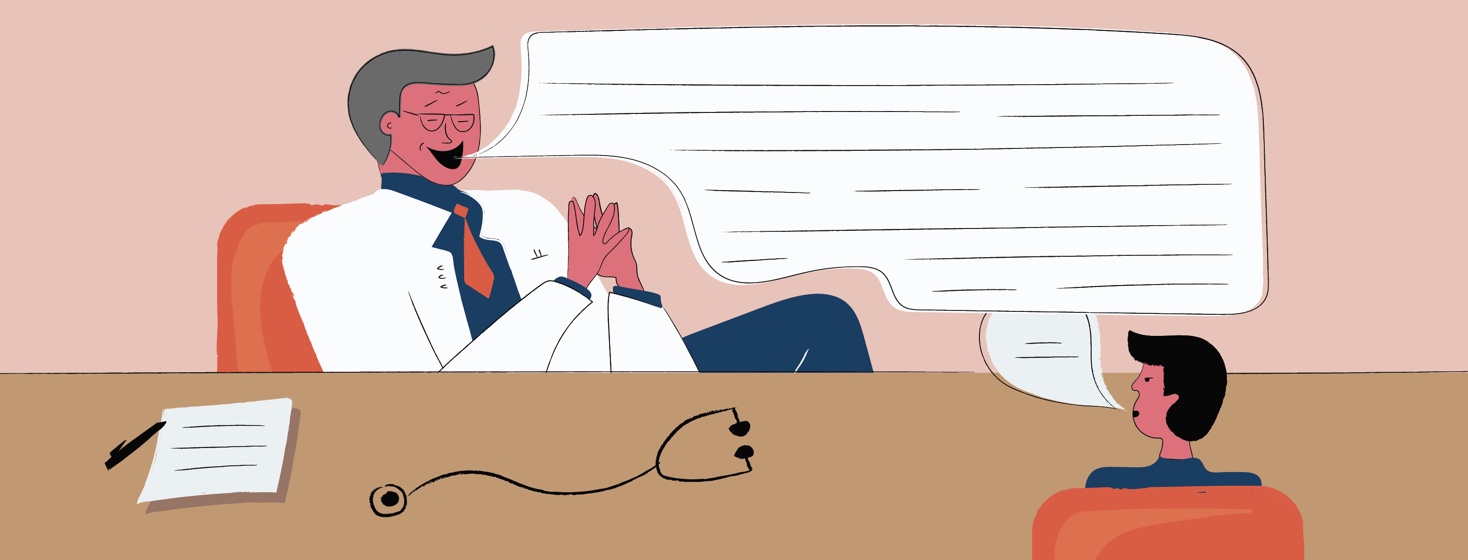Docsplaining
I recently came across a great hashtag on Twitter: #docsplaining.
It comes from the word “mansplaining.” That word has been around for about 10 years now, and is used to describe a man explaining things, usually to a woman, in a condescending way, even if the man doesn’t know what he’s talking about, and the woman is an expert in the subject.
“Docsplaining” works the same way: a doctor explains things to a patient in ways that are not necessary or helpful (even about things that we are experts in, like our own experiences and feelings). According to one physician who pays attention to these things, docsplaining can take a few different forms.1
The components of docsplaining
Confident opinions
The first is being overly confident in a medical opinion. This happened to me last year. I had a strange growth on my hand and one on my forehead. As a cancer patient, I’m understandably paranoid about skin cancer. At my dermatologist appointment, I asked the doc about the two growths. “I’m not worried about them,” she said, and then left the room. (You’re not, but I am! What are they? Should I be worried at some point? When? How will I know?) The docsplaining doc didn’t feel the need to give me any details – her word was all that mattered.
Euphemisms
Another form comes from euphemisms – saying “You’ll feel a little sting” when they know the pain is likely to be considerable. They do this with good intentions, feeling like there’s no use in getting a patient more upset about something than necessary. But, of course, that backfires when things are worse than they let on. I am blessed (or maybe cursed) with a high tolerance for pain, so the “little sting” comments don’t bother me, personally. But I’ve talked to some other blood cancer patients who, for example, were unpleasantly surprised during the bone marrow biopsies.
Talking down (or up)
And then there is the docsplaining practice of misunderstanding a patient’s level of expertise. This goes both ways – talking down to a patient who is knowledgeable, or using too many medical terms with a patient who isn’t. This is what came to me immediately when I heard the term “docsplaining.” I consider myself very knowledgeable about follicular lymphoma. I’m enough of a nerd that I read medical journal articles for fun. But I had an oncologist who, at our first appointment together, started describing what blood cells were, in an attempt to explain my disease. At that point, I’d had follicular lymphoma for about 8 years. I didn’t need a basic explanation of my disease. And worse, as I politely tried to stop him and let him know that I read a lot and try to stay informed, he just steamrolled right through, not listening to anything I was saying, until his pre-prepared lecture was finished.
The importance of communicating
And that’s really the worst part about docsplaining: the lack of listening. I don’t expect a doctor to know me well enough to remember exactly what I need. I see my oncologist every 4 to 6 months, and he sees hundreds of patients in between. He can’t know what I need every time.
But he can listen when I talk. And as patients, the best thing that we can do to take control of our health is to insist that our doctors listen.

Join the conversation